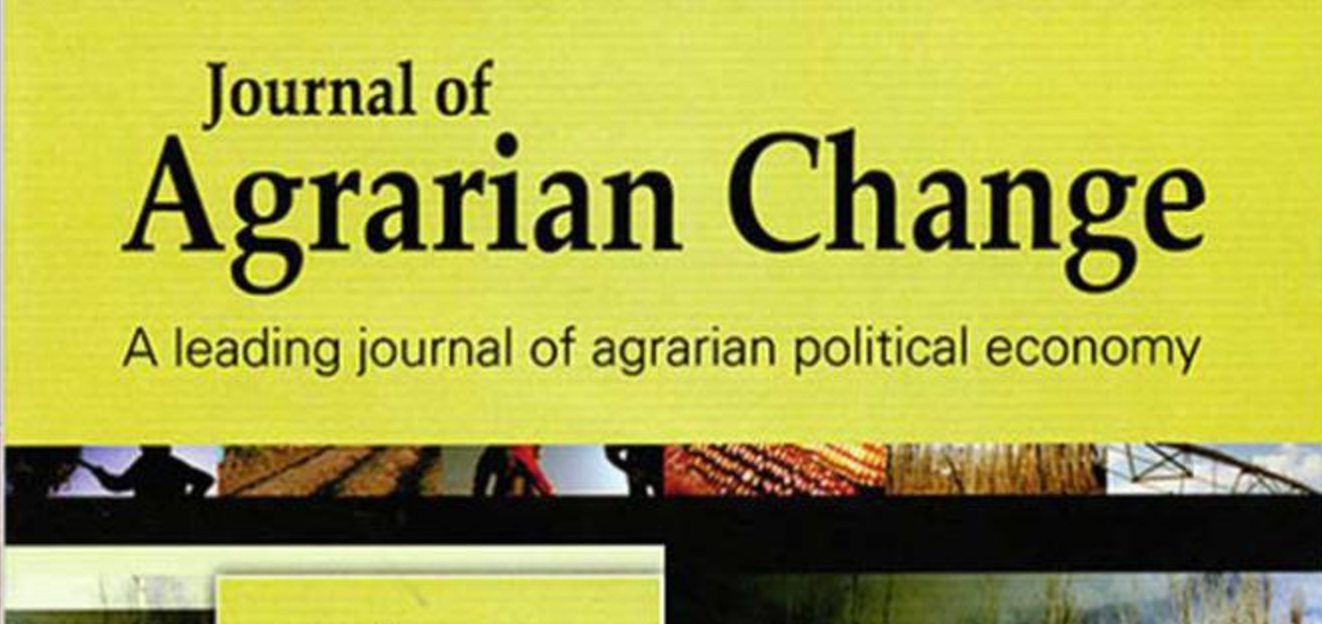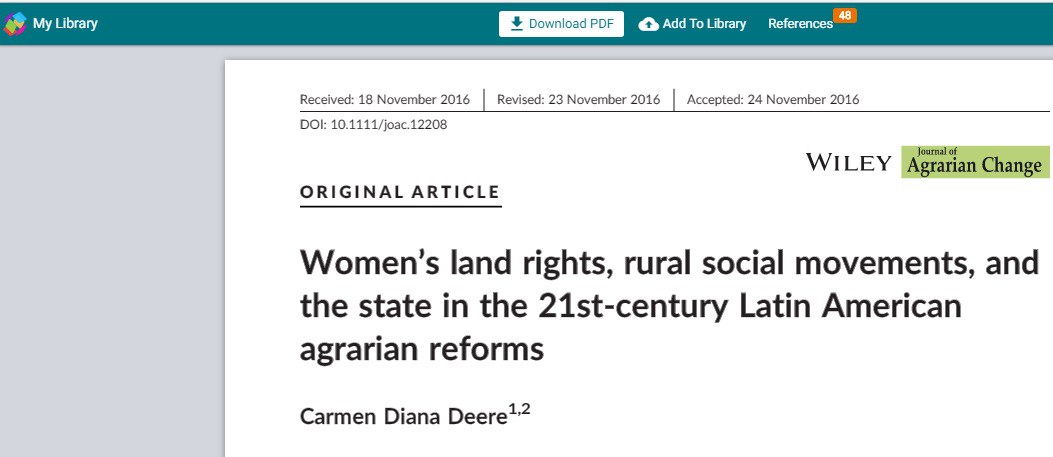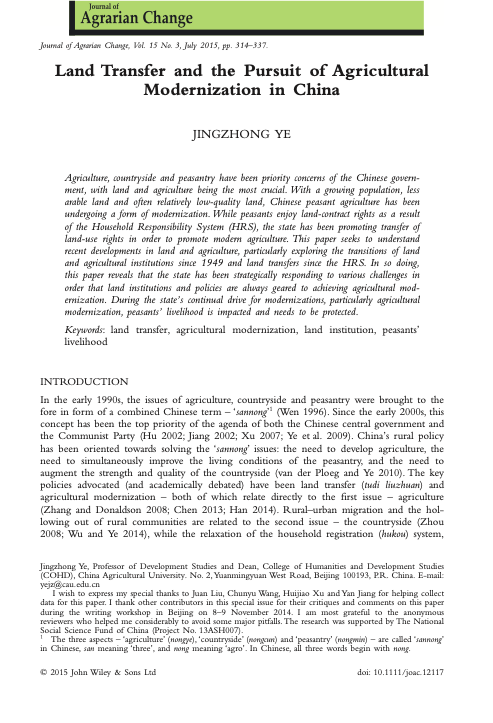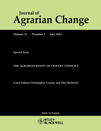Location
The Journal of Agrarian Change is a peer-reviewed academic journal established in 2001 covering agrarian political economy. The journal publishes historical and contemporary studies of the social relations and dynamics of production, power relations in agrarian formations and ownership structures and their processes of change.
Source: Wikipedia
Members:
Resources
Displaying 1 - 5 of 5Women’s land rights, rural social movements, and the state in the 21st-century Latin American agrarian reforms
This paper addresses the disjuncture between women’s formal land rights and their attaining these in practice, examining the four agrarian reforms carried out by progressive governments after 2000 in Bolivia, Brazil, Ecuador, and Venezuela. It finds that while all four strengthened women’s formal land rights, only the reforms in Bolivia and Brazil resulted in a significant share and number of female beneficiaries.
Land Transfer and the Pursuit of Agricultural Modernization in China
Agriculture, countryside and peasantry have been priority concerns of the Chinese govern- ment, with land and agriculture being the most crucial. With a growing population, less arable land and often relatively low-quality land, Chinese peasant agriculture has been undergoing a form of modernization.While peasants enjoy land-contract rights as a result of the Household Responsibility System (HRS), the state has been promoting transfer of land-use rights in order to promote modern agriculture.
Rebellion and Agrarian Tensions in Sierra Leone
This paper assesses the extent to which customary governance in Sierra Leone can be held responsible for an increasingly unstable two‐class agrarian society. A case is made for regarding the civil war (1991–2002) as being an eruption of long‐term, entrenched agrarian tensions exacerbated by chiefly rule. Evidence is presented to suggest that the main rebel movement embodied in its plans to reorganize agricultural production some grasp of these longer‐term agrarian problems. Postwar attempts to implement co‐operative farming and mining are then described.
Discourses on Women’s Land Rights in Sub-Saharan Africa: The Implications of the Re-turn to the Customary
Examines some contemporary policy discourses on land tenure reform in sub-Saharan Africa and their implications for women’s interests in land. Demonstrates an emerging consensus among a range of influential policy institutions (including the World Bank, IIED and Oxfam GB), lawyers and academics about the potential of so-called customary systems of land tenure to meet the needs of all land users and claimants. African women lawyers are much more equivocal about trusting the customary, preferring to look to the State for laws to protect women’s interests.
¿De quién es la tierra? Género y programas de titulación de tierras en América Latina
En los años noventa la intervención estatal en la agricultura latinoamericana se concentró en los programas de titulación de predios (TIERRA), diseñados para promover la seguridad de tenencia y fortalecer los mercados de tierras. Un examen de siete de estos programas sugiere que con frecuencia se diseñaron sin prestar atención suficiente a los códigos civiles y los regímenes matrimoniales que protegen los derechos de propiedad de las mujeres. Muchas veces ignoraron que en un hogar la tierra puede formar parte de tres tipos de propiedad: la de la esposa, del esposo y el patrimonio común.







